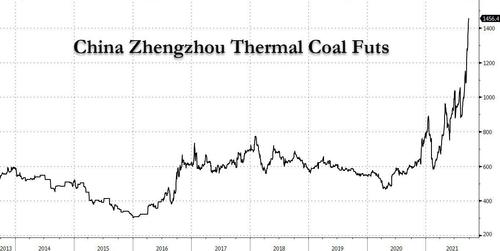The Urethane Blog
Everchem Updates
VOLUME XXI
September 14, 2023
Everchem’s exclusive Closers Only Club is reserved for only the highest caliber brass-baller salesmen in the chemical industry. Watch the hype video and be introduced to the top of the league: — read more
September 27, 2021
Manchester foam products group acquires mattress manufacturer
Acquisitions September 27 2021
Manchester private equity firm NorthEdge and The Belfield Group have completed the sale of Usleep, a specialist mattress manufacturer, to The Vita Group, the Middleton-based manufacturer of premium foam products, for an undisclosed sum.
Usleep is a subsidiary of upholstery and home furnishings manufacturer Belfield, which secured private equity investment from NorthEdge in 2016.
It provides an end-to-end service for its customers, from product design and development through to fulfilment, from two well-invested manufacturing sites in Ashton-under-Lyne and Castle Donnington.
Usleep is a zero waste to landfill business that works closely with its suppliers and customers to encourage sustainability and best-in-class business ethics.
The divestment of the Usleep subsidiary, which provides the second strong return for NorthEdge Fund II in the last quarter, follows a successful partnership between NorthEdge and Belfield.
During the partnership there has been significant investment into Usleep’s manufacturing facilties, providing capacity for growth and the capability to deliver market leading operational efficiency through semi-automated manufacturing – resulting in the business doubling EBITDA during the investment period.
Usleep serves market leading direct-to-consumer and omni-channel retailers, and continued to trade strongly throughout the COVID-19 pandemic as a result of the structural channel shift to online and the segment growth of foam and hybrid mattresses.
Vita’s acquisition of Usleep will allow the business to continue to grow its manufacturing capabilities and expand further internationally. The business will continue to be led by Paul Glynn, mattress divisional managing director, and Usleep managing director, Tina Tombs.
Gary Lasham, CEO of Belfield, said: “The backing we’ve had from NorthEdge has been excellent. They have supported the business with over £6m investment over the last four years to facilitate continued growth, including £2m to expand Usleep’s manufacturing capabilities in 2018.
“They have also driven our continuous focus on operational excellence, people and health and safety. Together we’ve built a high performing business, and we’re thrilled to have secured a new partner for Usleep that will allow the business to continue to achieve its full potential.”
Tom Rowley, director and head of Yorkshire and North East at NorthEdge, who led the Belfield MBO in 2016 alongside NorthEdge managing partner Grant Berry, said: “Usleep has consistently been a strong business in The Belfield Group. It is led by a highly experienced senior leadership team and has long standing customer and supplier relationships.
“During our partnership we have invested heavily into Usleep’s facilities, focussing on delivering operational excellence. As a result Usleep are the partner of choice for high growth omni channel and online retailers, and have the capability to continue expanding in line with increasing demand.”
Nicola McQuaid, director at NorthEdge, said: “It was vital for us to find the right partner for the next phase of Usleep’s growth.
“Vita has been supplying Usleep for some time, so they already had a strong relationship with the business and the management team, and critically recognised Usleep’s growth potential in the UK and internationally. We are looking forward to watching the business continue to grow over the coming years under Paul and Tina’s leadership.”
Paul Glynn, managing director of Usleep, said: “We’d like to thank the teams at Belfield and NorthEdge for their support over the years, and we can’t wait to see what the future holds for Usleep in partnership with Vita.”
Speaking on behalf of The Vita Group, group CEO Ian Robb said: “We are very excited to have Usleep join the Vita family. Usleep aligns with our values of safety, responsibility, resourcefulness, integrity, and innovation.
“Together, we look forward to supporting our customers and suppliers. This acquisition will enable collaboration on innovation across the end-to-end service, from unique foam technologies through to innovative mattress design.”
This will be the third acquisition completed by Vita in 2021 following the acquisitions of IMPE Srl, located in Naples, Italy, in the first quarter and UK-based Technical Foam Services in quarter two.
The Usleep acquisition significantly enhances and accelerates Vita’s strategy to grow its bedding business across Europe.
Vita has existing mattress production facilities in France, Germany, Romania, The Netherlands, UK and Hungary. Vita has long term strategic relationships with a range of global partners in the bedding sector, building on a wide range of R&D capabilities via its innovation centres in the UK (bedding) and Lithuania (chemistry/formulation).
NorthEdge and The Belfield Group were advised by Deloitte (lead advisory), Addleshaw Goddard (legal), PwC (FDD) and KPMG (tax structuring).
Vita was advised by DLA (legal), PwC (FDD, ops DD, tax), RSK (environmental DD) and Lockton (W&I broker).
www.thebusinessdesk.com/northwest/news/2086057-manchester-foam-products-group-acquires-mattress-manufacturer
September 27, 2021
Manchester foam products group acquires mattress manufacturer
Acquisitions September 27 2021
Manchester private equity firm NorthEdge and The Belfield Group have completed the sale of Usleep, a specialist mattress manufacturer, to The Vita Group, the Middleton-based manufacturer of premium foam products, for an undisclosed sum.
Usleep is a subsidiary of upholstery and home furnishings manufacturer Belfield, which secured private equity investment from NorthEdge in 2016.
It provides an end-to-end service for its customers, from product design and development through to fulfilment, from two well-invested manufacturing sites in Ashton-under-Lyne and Castle Donnington.
Usleep is a zero waste to landfill business that works closely with its suppliers and customers to encourage sustainability and best-in-class business ethics.
The divestment of the Usleep subsidiary, which provides the second strong return for NorthEdge Fund II in the last quarter, follows a successful partnership between NorthEdge and Belfield.
During the partnership there has been significant investment into Usleep’s manufacturing facilties, providing capacity for growth and the capability to deliver market leading operational efficiency through semi-automated manufacturing – resulting in the business doubling EBITDA during the investment period.
Usleep serves market leading direct-to-consumer and omni-channel retailers, and continued to trade strongly throughout the COVID-19 pandemic as a result of the structural channel shift to online and the segment growth of foam and hybrid mattresses.
Vita’s acquisition of Usleep will allow the business to continue to grow its manufacturing capabilities and expand further internationally. The business will continue to be led by Paul Glynn, mattress divisional managing director, and Usleep managing director, Tina Tombs.
Gary Lasham, CEO of Belfield, said: “The backing we’ve had from NorthEdge has been excellent. They have supported the business with over £6m investment over the last four years to facilitate continued growth, including £2m to expand Usleep’s manufacturing capabilities in 2018.
“They have also driven our continuous focus on operational excellence, people and health and safety. Together we’ve built a high performing business, and we’re thrilled to have secured a new partner for Usleep that will allow the business to continue to achieve its full potential.”
Tom Rowley, director and head of Yorkshire and North East at NorthEdge, who led the Belfield MBO in 2016 alongside NorthEdge managing partner Grant Berry, said: “Usleep has consistently been a strong business in The Belfield Group. It is led by a highly experienced senior leadership team and has long standing customer and supplier relationships.
“During our partnership we have invested heavily into Usleep’s facilities, focussing on delivering operational excellence. As a result Usleep are the partner of choice for high growth omni channel and online retailers, and have the capability to continue expanding in line with increasing demand.”
Nicola McQuaid, director at NorthEdge, said: “It was vital for us to find the right partner for the next phase of Usleep’s growth.
“Vita has been supplying Usleep for some time, so they already had a strong relationship with the business and the management team, and critically recognised Usleep’s growth potential in the UK and internationally. We are looking forward to watching the business continue to grow over the coming years under Paul and Tina’s leadership.”
Paul Glynn, managing director of Usleep, said: “We’d like to thank the teams at Belfield and NorthEdge for their support over the years, and we can’t wait to see what the future holds for Usleep in partnership with Vita.”
Speaking on behalf of The Vita Group, group CEO Ian Robb said: “We are very excited to have Usleep join the Vita family. Usleep aligns with our values of safety, responsibility, resourcefulness, integrity, and innovation.
“Together, we look forward to supporting our customers and suppliers. This acquisition will enable collaboration on innovation across the end-to-end service, from unique foam technologies through to innovative mattress design.”
This will be the third acquisition completed by Vita in 2021 following the acquisitions of IMPE Srl, located in Naples, Italy, in the first quarter and UK-based Technical Foam Services in quarter two.
The Usleep acquisition significantly enhances and accelerates Vita’s strategy to grow its bedding business across Europe.
Vita has existing mattress production facilities in France, Germany, Romania, The Netherlands, UK and Hungary. Vita has long term strategic relationships with a range of global partners in the bedding sector, building on a wide range of R&D capabilities via its innovation centres in the UK (bedding) and Lithuania (chemistry/formulation).
NorthEdge and The Belfield Group were advised by Deloitte (lead advisory), Addleshaw Goddard (legal), PwC (FDD) and KPMG (tax structuring).
Vita was advised by DLA (legal), PwC (FDD, ops DD, tax), RSK (environmental DD) and Lockton (W&I broker).
www.thebusinessdesk.com/northwest/news/2086057-manchester-foam-products-group-acquires-mattress-manufacturer
September 27, 2021
China says to firmly control energy-hungry and high-emission projects CGTN
China’s National Development and Reform Commission issues a plan to improve the country’s “dual control system” on energy consumption and energy intensity, September 11, 2021. /CFP
China will firmly control energy-hungry and high-emission projects, the National Development and Reform Commission said in a recently issued plan, according to a notice released on Thursday.
The plan aims to improve China’s “dual control system” on energy consumption and energy intensity, or the amount of energy consumed per unit of GDP.
The dual control system, first set in the country’s 11th Five-Year Plan (2006-2010), has taken on added significance since Chinese President Xi Jinping in September 2020 committed the country to peaking carbon emissions by 2030 and becoming carbon neutral by 2060.
According to the plan, China will set a five-year target of energy consumption and energy intensity for different provinces, autonomous regions and municipalities, in an effort to reasonably manage indicators of total energy consumption and energy intensity.
The plan also clarified a series of phased goals of China.
By 2025, the dual control system will be more complete, with a more reasonable allocation of energy resources and sharply improved energy utilization efficiency.
By 2030, with a further improved dual control system, the intensity of energy consumption will continue to drop significantly, the total energy consumption be reasonably controlled and the energy structure be more optimized.
By 2035, the optimal allocation of energy and the comprehensive conservation system of resources will be more mature and finalized, which will strongly support the achievement of the goal of steadily reducing carbon emissions after reaching the peak.
September 27, 2021
China says to firmly control energy-hungry and high-emission projects CGTN
China’s National Development and Reform Commission issues a plan to improve the country’s “dual control system” on energy consumption and energy intensity, September 11, 2021. /CFP
China will firmly control energy-hungry and high-emission projects, the National Development and Reform Commission said in a recently issued plan, according to a notice released on Thursday.
The plan aims to improve China’s “dual control system” on energy consumption and energy intensity, or the amount of energy consumed per unit of GDP.
The dual control system, first set in the country’s 11th Five-Year Plan (2006-2010), has taken on added significance since Chinese President Xi Jinping in September 2020 committed the country to peaking carbon emissions by 2030 and becoming carbon neutral by 2060.
According to the plan, China will set a five-year target of energy consumption and energy intensity for different provinces, autonomous regions and municipalities, in an effort to reasonably manage indicators of total energy consumption and energy intensity.
The plan also clarified a series of phased goals of China.
By 2025, the dual control system will be more complete, with a more reasonable allocation of energy resources and sharply improved energy utilization efficiency.
By 2030, with a further improved dual control system, the intensity of energy consumption will continue to drop significantly, the total energy consumption be reasonably controlled and the energy structure be more optimized.
By 2035, the optimal allocation of energy and the comprehensive conservation system of resources will be more mature and finalized, which will strongly support the achievement of the goal of steadily reducing carbon emissions after reaching the peak.
September 27, 2021
Millions Of Chinese Residents Lose Power After Widespread, “Unexpected” Blackouts; Power Company Warns This Is “New Normal”
by Tyler DurdenMonday, Sep 27, 2021 – 12:40 PM
Just yesterday we warned that a “Power Supply Shock Looms” as the energy crisis gripping Europe – and especially the UK – was set to hammer China, and just a few hours later we see this in practice as residents in three north-east Chinese provinces experienced unannounced power cuts as the electricity shortage which initially hit factories spreads to homes.
People living in Liaoning, Jilin and Heilongjiang provinces complained on social media about the lack of heating, and lifts and traffic lights not working.
Local media in China – which is highly dependent on coal for power – said the cause was a surge in coal prices leading to short supply. As shown in the chart below, Chinese thermal coal futures have more than doubled in price in the past year.

There are several reasons for the surge in thermal coal, among them already extremely tight energy supply globally (that’s already seen chaos engulf markets in Europe); the sharp economic rebound from COVID lockdowns that has boosted demand from households and businesses; a warm summer which led to extreme air condition consumption across China; the escalating trade spat with Australia which had depressed the coal trade and Chinese power companies ramping up power purchases to ensure winter coal supply. Then there is Beijing’s pursuit of curbing carbon emissions – Xi Jinping wants to ensure blue skies at the Winter Olympics in Beijing next February, showing the international community that he’s serious about de-carbonizing the economy – that has led to artificial bottlenecks in the coal supply chain.
The coal price surge prompted the China Electricity Council to publish a statement saying that “to ensure winter coal supply, power companies continue to increase market purchases *regardless of cost* under the situation of substantial losses.”
Whatever the reason, it’s just getting started: as BBC reported, one power company said it expected the power cuts to last until spring next year, and that unexpected outages would become “the new normal.” Its post, however, was later deleted.
At first, the energy shortage affected factories and manufacturers across the country, many of whom have had to curb or stop production in recent weeks. In the city of Dongguan, a major manufacturing hub near Hong Kong, a shoe factory that employs 300 workers rented a generator last week for $10,000 a month to ensure that work could continue. Between the rental costs and the diesel fuel for powering it, electricity is now twice as expensive as when the factory was simply tapping the grid.
“This year is the worst year since we opened the factory nearly 20 years ago,” said Jack Tang, the factory’s general manager. Economists predicted that production interruptions at Chinese factories would make it harder for many stores in the West to restock empty shelves and could contribute to inflation in the coming months.
Three publicly traded Taiwanese electronics companies, including two suppliers to Apple and one to Tesla, issued statements on Sunday night warning that their factories were among those affected. Apple had no immediate comment, while Tesla did not respond to a request for comment.
But over the weekend residents in some cities saw their power cut intermittently as well, with the hashtag “North-east electricity cuts” and other related phrases trending on Twitter-like social media platform Weibo.
The extent of the blackouts is not yet clear, but nearly 100 million people live in the three provinces.
In Liaoning province, a factory where ventilators suddenly stopped working had to send 23 staff to hospital with carbon monoxide poisoning.
There were also reports of some who were taken to hospital after they used stoves in poorly-ventilated rooms for heating, and people living in high-rise buildings who had to climb up and down dozens of flights of stairs as their lifts were not functioning. Some municipal pumping stations have shut down, prompting one town to urge residents to store extra water for the next several months, though it later withdrew the advice.
One video circulating on Chinese media showed cars travelling on one side of a busy highway in Shenyang in complete darkness, as traffic lights and streetlights were switched off. City authorities told The Beijing News outlet that they were seeing a “massive” shortage of power.

Social media posts from the affected region said the situation was similar to living in neighboring North Korea.
The Jilin provincial government said efforts were being made to source more coal from Inner Mongolia to address the coal shortage.
As noted previously, power restrictions are already in place for factories in 10 other provinces, including manufacturing bases Shandong, Guangdong and Jiangsu.
Of course, a key culprit behind China’s shocking blackouts is Xi Jinping’s recent pledge that his country will reach peak carbon emissions within nine years. As a reminder, two-thirds of China’s electricity comes from burning coal, which Beijing is trying to curb to address climate change. While coal prices have surged along with demand, because the government keeps electricity prices low, particularly in residential areas, usage by homes and businesses has climbed regardless.
Faced with losing more money with each additional ton of coal they burn, some power plants have closed for maintenance in recent weeks, saying that this was needed for safety reasons. Many other power plants have been operating below full capacity, and have been leery of increasing generation when that would mean losing more money, said Lin Boqiang, dean of the China Institute for Energy Policy Studies at Xiamen University.
“If those guys produce more, it has a huge impact on electricity demand,” Professor Lin said, adding that China’s economic minders would order those three industrial users to ease back.
Meanwhile, even as it cracks down on conventional fossil fuels, China still does not have a credible alternative “green” source of energy. Adding insult to injury, various regions have been criticized by the government for failing to make energy reduction targets, putting pressure on local officials not to expand power consumption, the BBC’s Stephen McDonell reports.
And while the blackouts starting to hit household power usage are at most an inconvenience, if one which may soon result in even more civil unrest if these are not contained, a bigger worry is that the already snarled supply chains could get even more broken, leading to even greater supply-disruption driven inflation.
As Source Beijing reports, several chip packaging service providers of Intel and Qualcomm were told to shut down factories in Jiangsu province for several days amid what could be the worst power shortage in years.

The blackout is expected to affect global semiconductor supplies – which as everyone knows are already highly challenged – if the power cuts extend during winter.
The NYT confirms as much, writing today that the electricity shortage is starting to make supply chain problems worse. The sudden restart of the world economy has led to shortages of key components like computer chips and has helped provoke a mix-up in global shipping lines, putting in the wrong places too many containers and the ships that carry them.
Nationwide power shortages have prompted economists to reduce their estimates for China’s growth this year. Nomura, a Japanese financial institution, cut its forecast for economic expansion in the last three months of this year to 3 percent, from 4.4 percent.
It is not clear how long the power crunch will last. Experts in China predicted that officials would compensate by steering electricity away from energy-intensive heavy industries like steel, cement and aluminum, and said that might fix the problem. State Grid, the government-run power distributor, said in a statement on Monday that it would guarantee supplies “and resolutely maintain the bottom line of people’s livelihoods, development and safety.”
Maybe China should just blame bitcoin miners for the crisis to avoid public anger… alas, it can’t do that since it already banned them and drove most of its technological innovators out of the country.

